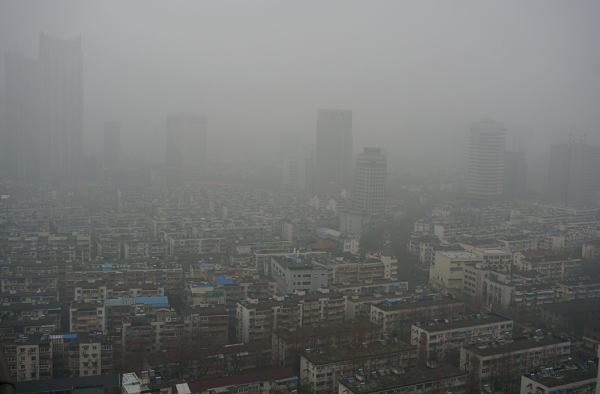China Air Pollution: 'Green Necklace' Project Could Help Beijing's Smog Problem

Chinese officials are taking a green approach to solving the country’s air pollution problem, starting with a new project in Beijing and the surrounding province of Hebei to plant more trees and shrubs in surrounding wetlands.
Hebei’s government said green belts would be planted all around Beijing, creating a “green necklace” to combat the heavy smog engulfing the area.
Related: India's Dangerous Air Particles Caused Roughly 1.1 million Premature Deaths Annually
More than 22 million people live in Beijing, one of the fastest-growing cities in China. Overpopulation — along with poorly regulated chemical, transport equipment, machinery and metallurgy industries, many of which were once powered by coal fire — has led to hazardous air pollution.
In a statement released Thursday, officials said Beijing and Hebei would expand its ecological space and plant more greenery near river systems, mountains and wetlands, creating green belts around Beijing which could combat air pollution. Urban development outside of Beijing and Hebei will be restricted by the environmental project in exchange for more farming and agricultural efforts. Beijing’s public transportation may also face new regulations to help improve air quality, officials said.
As for Beijing’s coal consumption, which has been the source of dangerous outbreaks of smog in the city, production and use will see a significant decline since the city decommissioned its last coal-fueled power plant in early March.
Aside from creating a green necklace of vegetation around Beijing, city officials said some industries and other “non-capital functions” will be relocated to Hebei within the next few years in an attempt to curb population and pollution in Beijing.
Beijing is at the epicenter of the war on smog, having issued its first air pollution “red alert” in December 2015. Schools, factories and construction sites were forced to close due to fatal chemical levels in the air that created thick, “putty-colored” smog, BBC News reported.
“You can definitely smell the pollution. Your eyes itch, you cough. It's like a very rich, dense soup when the pollution levels are very high—thousands of chemicals, gases that are irritants, carcinogens,” Dr. Jim Zhang, a Duke University professor of global environmental health who works in the U.S. and China, told BBC at the time. “It's very hard to get data to show whether the pollution is going to have a long-lasting effect, like a cancer, but there is a reason to believe that, because the pollution soup contains chemicals which can induce cancer.”
© Copyright IBTimes 2024. All rights reserved.






















